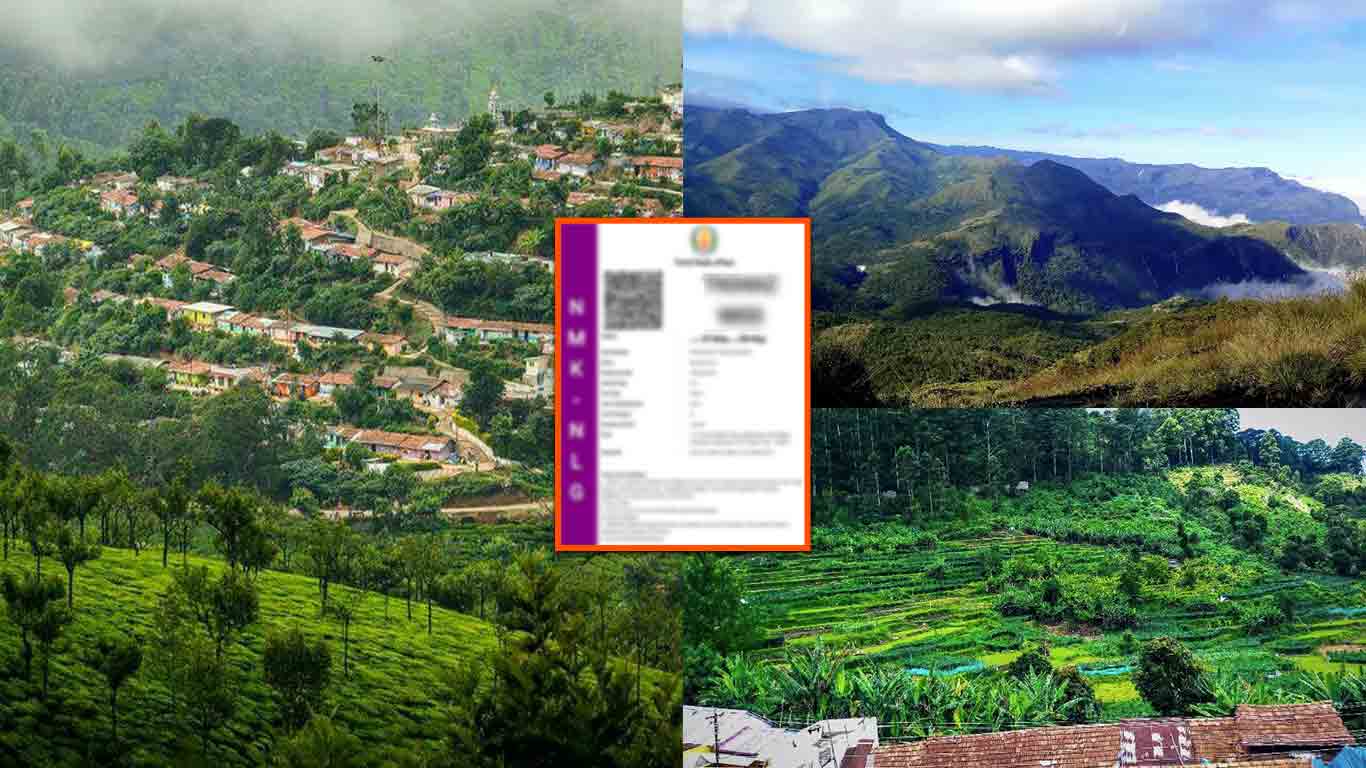Due to the worsening summer season, people from all districts are heading to Ooty and Kodaikanal. Only vehicles with an Epass are permitted to enter through the checkpoints.
Tourists To Ooty and Kodaikanal:
The summer season has begun in the Nilgiri district and Dindigul, leading to a significant increase in the number of tourists visit. As a result, the the Ooty and Kodaikanal narrow streets are experiencing heavy traffic congestion.
E-Pass To Ooty:
To address this issue, the state government have implemented a system requiring vehicles entering the Nilgiris district to obtain an e-pass. This system will be in place from today until June 30, with no limit on the number of vehicles allowed to enter as long as they have a valid e-pass.
According to the ooty district collector Aruna, all vehicles with a proper e-pass can enter the Nilgiris district. Teams comprising the revenue department and women's self-help groups are stationed at the Tamil Nadu-Kerala and Tamil Nadu-Karnataka borders at Gudalur to check vehicles entering the Nilgiris. Only vehicles with an e-pass are permitted to enter the district.
Mudumalai Tiger Reserve:
Most tourists visiting Ooty will obviously visit Masinagudi, Mudumalai Tiger Reserve. But this year, the number of tourists visiting Mudumalai has gradually decreased following the drought and dryness. Cattle and wild animals are struggling with no proper food and water. Many cattle are dying due to this. The wild animals especially elephants re found skinny.
Usually, heavy rainfall occurs in the Mudumalai Tiger Reserve during the months of June and July. As a result, it is expected that Mudumalai will be dry, and tourists will visit.
Kodaikanal - Princess Of Hills:
On the other hand, Kodaikanal, popularly known as the 'Princess of the Hills,' is a well-liked tourist destination that attracts visitors throughout the year, especially during the summer. Thousands of visitors come to Kodaikanal daily, not only from Tamil Nadu but also from other states.
Especially after the release of Mannjumel Boys, Kodaikanal became more crowded than usual. The Guna caves were the most important and well-known tourist spot in Kodaikanal. The youngsters, with their friends' gang, are flocking to Kodaikanal with full energy. It is expected that Kodaikanal will have more tourists this year than Ooty amidst the E-pass system.
Although tourist vehicle counts are not restricted from entering checkposts, certain measures have been put in place to ensure the safety of animals and the local livelihood. The conditions are listed below the E-Pass to notify the applicants. The terms and conditions are listed below.
Terms and Conditions to travel to Ooty and Kodaikanal:
- Plastic is banned in Kodaikanal and Nilgiris.
- The travelers should not carry or use plastic bags, plastic cups, water bottles, soft drinks bottles, etc., in Kodaikanal/Nilgiris.
- Those who break the rules will be subject to penalties.
- Tourists should not litter.
- Do not cook or consume food items along the roadside.
- The most important thing while traveling hill station is to avoid Speeding.
- Vehicles might be stopped wherever necessary, such as at the border check post for plastic checking and toll tax collection.
- Do not feed the wild animals.
How To Apply E-Pass To Ooty and Kodaikanal?
Step 1: Log In to http://epass.tnega.org
Step 2: Fill in the mobile number, enter the captcha, and then enter the OTP.
Step 3: Enter your Applicant name, Purpose of visit, Vehicle Registration number, Number of passengers, Year of manufacture, Vehicle type and Fuel Type.
Step 4: Mention the Date of Entry, Date of Exit, Country, State and Address.
Step 5: After filling out the form, click 'Confirm' after reading the guidelines.
Step 6: E-Pass will be generated.
Ultimately, balancing tourism with environmental preservation remains paramount, ensuring that these scenic destinations continue to enchant visitors while safeguarding their ecological integrity.
